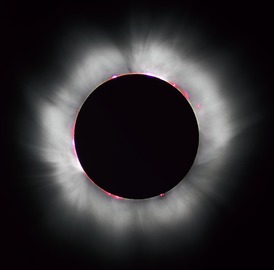nasa.gov
Always private
DuckDuckGo never tracks your searches.
Learn MoreYou can hide this reminder in Search Settings
All regions
Argentina
Australia
Austria
Belgium (fr)
Belgium (nl)
Brazil
Bulgaria
Canada (en)
Canada (fr)
Catalonia
Chile
China
Colombia
Croatia
Czech Republic
Denmark
Estonia
Finland
France
Germany
Greece
Hong Kong
Hungary
Iceland
India (en)
Indonesia (en)
Ireland
Israel (en)
Italy
Japan
Korea
Latvia
Lithuania
Malaysia (en)
Mexico
Netherlands
New Zealand
Norway
Pakistan (en)
Peru
Philippines (en)
Poland
Portugal
Romania
Russia
Saudi Arabia
Singapore
Slovakia
Slovenia
South Africa
Spain (ca)
Spain (es)
Sweden
Switzerland (de)
Switzerland (fr)
Taiwan
Thailand (en)
Turkey
Ukraine
United Kingdom
US (English)
US (Spanish)
Vietnam (en)
Safe search: moderate
Strict
Moderate
Off
Any time
- Was this helpful?
- Learn about the two types of eclipses on Earth: lunar and solar. Find out how they happen, what they look like, and why NASA studies them.
- Videos for what is an eclipseWas this helpful?
en.wikipedia.org
An eclipse is when one celestial body blocks another from view, such as a solar eclipse or a lunar eclipse. Learn about the causes, types and history of eclipses, and see images and diagrams of different eclipse configurations.britannica.com
7 days agoAn eclipse is when one celestial body blocks or partially covers another, such as the Sun or the Moon. Learn about the different kinds of eclipses, how they occur, and their significance in history and culture.usatoday.com
Apr 8, 2024The major difference between the solar eclipse and the lunar eclipse is the positioning of the sun, the moon and the earth, according to NASA.nasa.gov
Learn what an eclipse is and how it happens when one object in space passes through the shadow of another. Find out the difference between lunar and solar eclipses and why NASA studies them.public.nrao.edu
National Radio Astronomy Observatory
https://public.nrao.edu › eclipse-basics
An eclipse is an amazing celestial event which has filled humans with wonder and awe throughout history. As astronomers have studied eclipses, they have introduced a great deal of terminology to describe the various types and parts of an eclipse. You can find definitions regarding the two categories of eclipses below.esa.int
European Space Agency
https://www.esa.int › Science_Exploration › Space_Science › What_is_an_eclipse
Learn how solar and lunar eclipses occur when the Sun, Moon and Earth are aligned, and how they differ in appearance and frequency. Find out why solar eclipses are rare and lunar eclipses are more common, and how Earth's shadow affects the Moon's colour.eclipse.web.baylor.edu
Baylor University
https://eclipse.web.baylor.edu › what-is-an-eclipse
An eclipse is when one object moves into the shadow of another. Learn about the two types of eclipses: lunar and solar, and the three types of solar eclipses: total, partial and annular.starchild.gsfc.nasa.gov
starchild.gsfc.nasa.gov
https://starchild.gsfc.nasa.gov › docs › StarChild › questions › question6.html
An eclipse is when one object blocks your view of another object. Learn about the two kinds of eclipses from Earth: lunar and solar, and how they happen.eclipse.asa.astronomy.org.au
Learn how eclipses occur when the Sun, Moon and Earth are aligned, and what types of eclipses are possible. Find out why eclipses are rare and spectacular events, and how they depend on the size and distance of the Sun and Moon.Can’t find what you’re looking for?
Help us improve DuckDuckGo searches with your feedback
